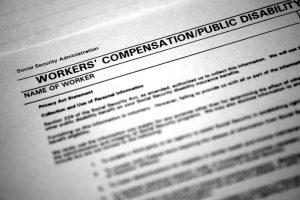As a no-fault form of insurance, workers’ compensation provides financial assistance for employees that suffer injuries while performing work-related functions. Workers’ comp covers the cost of medical care, as well as the money required to pay for daily living expenses.
As part of the California Workers’ Compensation Act (WCA), the Division of Workers’ Compensation (DWC) monitors employer compliance to ensure workers receive the financial assistance they deserve according to the state’s workers compensation law.
Coverage Requirements for Employers
Virtually every employer registered to do business in California must purchase workers’ comp insurance coverage for employees. Under the definition created by the WCA, an employee is “any individual working for another individual or organization.” An employee cannot be an independent contractor hired to work on a project-by-project basis. WCA workers’ compensation coverage requirements apply to businesses that have just one employee on their payrolls.
Workers’ comp coverage in California also applies to temporary workers, such as the employees hired out by temporary employment agencies. Labor contractors that hire temporary workers also must pay into the state’s workers’ compensation program. To meet the coverage requirements established by the WCA, employers can purchase workers’ comp insurance from a private company or apply for self-insurance certification with the Office of Self Insurance Plans (OSIP).
Requirements for the Coverage Notice
According to WCA guidelines, an employer must display a notice in a common area stating the employer has bought workers’ compensation insurance that follows the guidelines set by the WCA. Any employer that fails to display a workers’ comp compliance notice might face a misdemeanor charge. The coverage has to be available for employees to read in both English and Spanish that describes employee rights and requirements.
New employees must receive specific instructions that concern worker’s compensation claims.
- The responsibilities of the main physician
- How to get sufficient medical care to treat work-related injuries
- How to acquire and submit the form that asks to use a personal physician
Employer Injury Reporting Requirements
Employers must report work-related injuries that resulted in lost time at work and/or medical care that goes beyond the treatment delivered by basic first aid. The WCA defines “first aid” as a one-time treatment session that includes a follow-up examination for cuts, burns, splinters, or other minor injuries.
An employer must provide employees with Form DWC-1, which is the Workers’ Compensation Claim Form & Notice of Potential Eligibility, within one working day after the employer learns about a job-related injury. The employer asks the injured employee to complete the employee section of Form DWC-1 and return it to the employer promptly for completion of the employer section of the form.
Within one working day of receiving the complete Form DWC-1, the employer submits the form to its insurance carrier or the California Department of Industrial Relations if the employer is self-insured.
Contact a California Workers’ Compensation Attorney
Despite California’s reputation as a work-friendly state when it comes to workers’ compensation, some employers bank on employees not knowing their rights under state law. If you suffered one or more injuries in a work-related capacity, you need to act with a sense of urgency to ensure you receive just compensation for treating your injuries, as well as to pay for daily living expenses.
The Long Beach team of California workers’ comp lawyers at PLBH Law Firm is ready to help you understand your rights as established by the WCA. Call us today at (800) 435-7542 or submit the short online form to schedule a free initial consultation.

